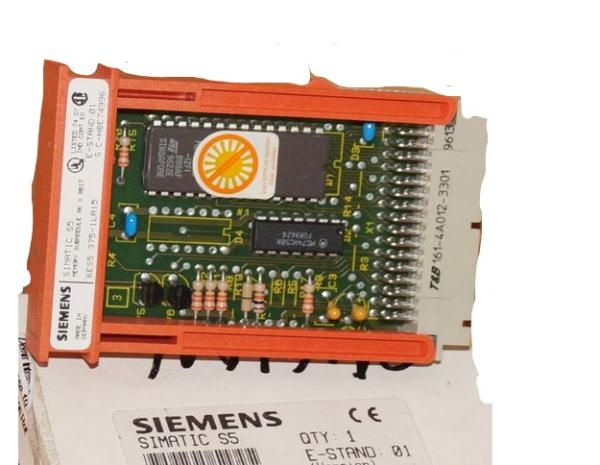Customer voice

14.50€ Tax Excl.
Used
Availability : In-stock
2 articles remaining in stock
To get a quote, add your products to the basket and generate your quote.
We're shipping in less than 48h

All parts are in stock
With our partners

Quote
To get a quote, in your basket, click on « get a quote » and add the reference(s)

Online payment or after quote
If you can not pay by card or bank transfer

Receive bills
For all your orders

Shipping worldwide

Product warranty

90 days return
If parts have problems
Specifications
Product origin
Stock origin
European construction industrialist
Storage condition
Excellent - Warehouse-ventilated area, away from dust (storage cabinets)
Warranty
3 months
Our other offers
| Condition: | Vendor | Price |
|---|---|---|
| Used | kheoos Voir les produits du vendeur | 14.50€ Tax Excl. (par unité) |
| Used | kheoos Voir les produits du vendeur | 14.50€ Tax Excl. (par unité) |
Our conditions
| Condition: | Description |
|---|---|
| New | New - Item never used, unopened, sold in the original packaging |
| Like New | Like New - Item in excellent condition, without signs of wear, in its original packaging or refurbished, small defects possible that do not affect the operation |
| Refurbished | Refurbished - Item repaired, inspected and cleaned by the seller or by a third party not necessarily approved by the manufacturer and in excellent working condition |
| Used | Used - Item having been used, showing some superficial signs of wear, fully operational and working properly |
About the category
API memory cards play a crucial role in today's digital world, especially for businesses and developers working with complex hardware and software. Understanding their diverse applications and integration is essential to optimizing the functionality and effectiveness of many technology systems.
An API memory card is an electronic storage device intended to save and access digital data. These *APIs* enable a standardized interface to communicate between different software and hardware modules, thus facilitating increased flexibility and compatibility.
Unique features of API memory cards include a wide range of storage capacities, from a few megabytes to several terabytes. They also offer varied read and write speeds, allowing performance to be optimized according to specific user needs.
In the context of PC(s), API memory cards can store critical data such as operating system, software applications, and user files. Their ability to provide rapid access to data improves the overall performance of PCs, ensuring smooth and responsive operation of applications.
The integration of PLC memory cards into industrial environments is common, particularly in automated control systems such as those provided by Siemens. These cards are used to store system configurations, Programmable Logic Controller (PLC) programs, and critical operational data. For example, they enable safe backup and efficient recovery in the event of a system failure.
The physical size of an API memory card can vary, but are generally defined by international dimensional standards (dim.). Typical length and width directly influence their compatibility with various devices. Compact varieties like microSDs often measure 15mm x 11mm while other models can be larger.
API memory cards come with a wide range of capacities that dictate the volume of data that can be stored on them, from a few gigabytes up to several terabytes. In terms of memory type, we find SSD (Solid State Disk) memories for ultra-fast reads/writes, and eMMC (embedded MMC) memories suitable for mobile or embedded applications.
To get the most out of an API memory card, it is imperative to select technical specifications that match your specific requirements. For example, if your application requires rapid transfer of large files, a card with high read/write speed would be appropriate. You must also take into account the compatibility of the dimensions with your device.
The controllers present in API memory cards play a vital role in managing read and write operations. These components use *sophisticated algorithms* to balance the load and prevent premature wear of memory cells, ensuring extended life and consistent optimal performance.
Unlike traditional memory cards, API memory cards offer advanced interfaces allowing for more flexible integration and expanded functionality. Although traditional memory cards are sufficient for basic operations, APIs add an extra layer of flexibility much needed in more complex environments.
Hard drives and SSDs are other storage options. Hard drives generally offer more capacity at lower costs, but the performance and durability are not comparable to API memory cards. SSDs, on the other hand, offer comparable speeds, but may lack the portability and ease of integration that APIs provide. Choosing between these options strongly depends on the contexts of use and hardware/system constraints.
kheoos offers numerous memory cards for PLCs on its kheoosMarket site.